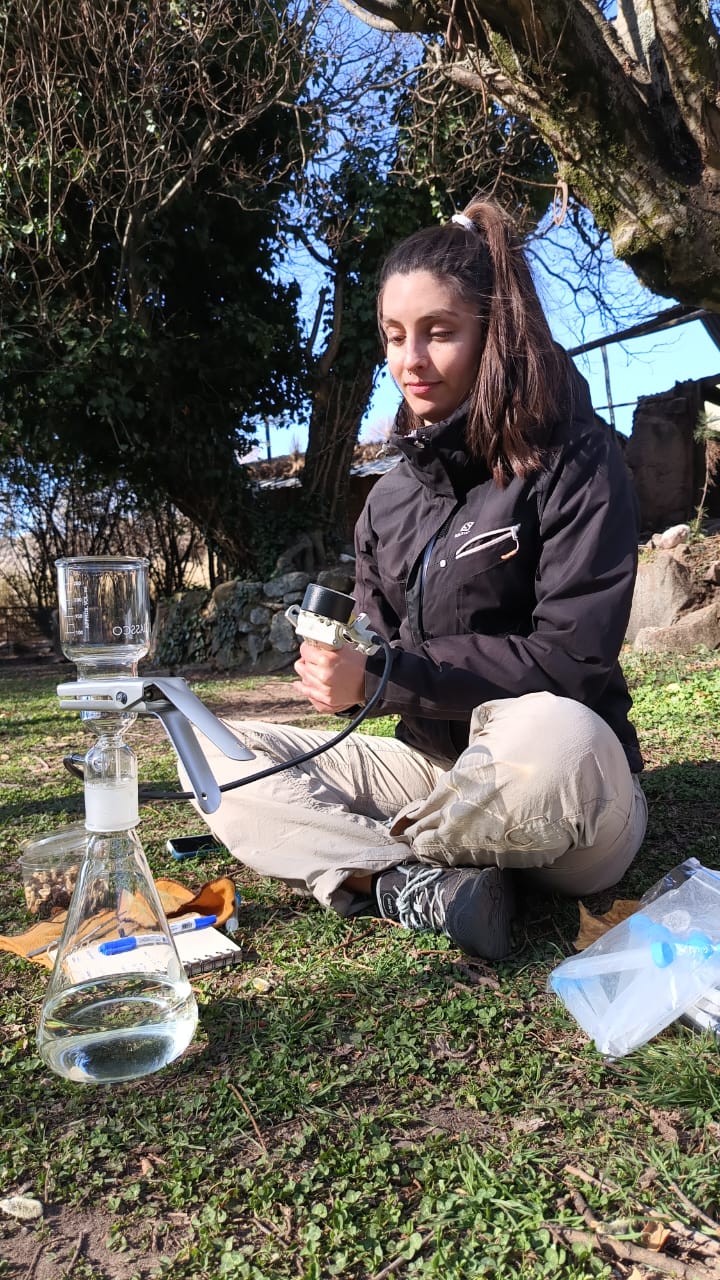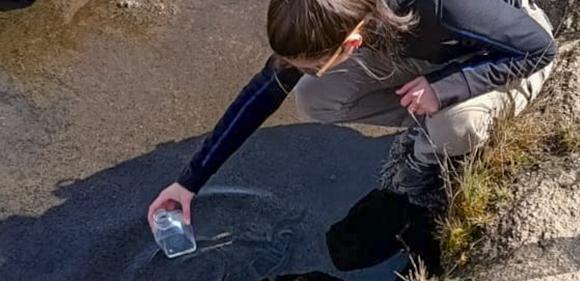In the heart of central Argentina’s high-altitude grasslands, a once thriving population of Achala Toads (Rhinella achalensis) found their haven. This endemic and endangered species was a common sight until the late 1990s. However, a sudden and drastic shift in demographic trends led to local extinctions in many of their habitats. The chief suspect behind this devastating change? A deadly outbreak of chytridiomycosis, brought about by the fungus Batrachochytrium dendrobatidis (Bd). Compounding the problem, the presence of invasive trout further jeopardized the Achala Toad’s survival.
Enter Josefina Pedernera, a dedicated researcher awarded a grant through the Amphibian Survival Alliance’s Disease Mitigation Grant Program. With a blend of curiosity and determination, Josefina embarked on a quest to unveil the underlying factors threatening the Achala Toad, proposing to gather crucial evidence through environmental DNA (eDNA) sampling.
 This eDNA approach enables extensive sampling with remarkable sensitivity, capable of detecting the deadly Bd pathogen and understanding its relationship with the Achala Toad, especially in the face of salmonid invasion. By collecting water samples during the reproductive season of R. achalensis from streams where the species reproduces, Josefina and her team initiated a journey into the molecular realm. Through vacuum pump filtration using 0.45 um filters, they began the process of eDNA extraction and molecular analysis, aiming to decipher the complex narrative of Bd abundance and its impact on the Achala Toad populations.
This eDNA approach enables extensive sampling with remarkable sensitivity, capable of detecting the deadly Bd pathogen and understanding its relationship with the Achala Toad, especially in the face of salmonid invasion. By collecting water samples during the reproductive season of R. achalensis from streams where the species reproduces, Josefina and her team initiated a journey into the molecular realm. Through vacuum pump filtration using 0.45 um filters, they began the process of eDNA extraction and molecular analysis, aiming to decipher the complex narrative of Bd abundance and its impact on the Achala Toad populations.
Their collaborative efforts have already yielded significant results. By strengthening the relationship with the local park ranger, Josefina and her team discovered a new reproductive population of Achala Toad. This finding is a stepping stone toward initiating long-term population monitoring, a crucial stride toward ensuring the survival of this unique species.
Moreover, engaging park rangers, technicians, authorities, and practitioners of the protected areas is instrumental in crafting a robust conservation management plan for the Achala Toad. The tale of the Achala Toad is not just a story of challenge but of hope, collaborative action, and the crucial role of community engagement in amphibian conservation. Through the dedicated efforts of Josefina and the support from the ASA’s Disease Mitigation Grant Program, there’s a glimmer of hope in unveiling effective conservation strategies to secure a future for the Achala Toad amidst the high-altitude grasslands of central Argentina.
Your Role: Support the Mission
Work led by researchers like Josefina Pedernera is crucial for amphibian conservation. Yet, resources are essential for such projects to thrive. The Disease Mitigation Grants from ASA play a key role but advancing this work to its full potential needs broader community support. Your contribution can significantly aid in discovering new insights and advancing conservation efforts.
Motivated by the story of the Achala Toad and the wider mission of ASA? Your donation today can make a real difference in the challenging journey of amphibian survival. Help fund the research that brings new knowledge, support the initiatives that turn findings into action, and endorse education that promotes a sustainable habitat for amphibians worldwide. Your support is critical for continuing progress in amphibian conservation.

